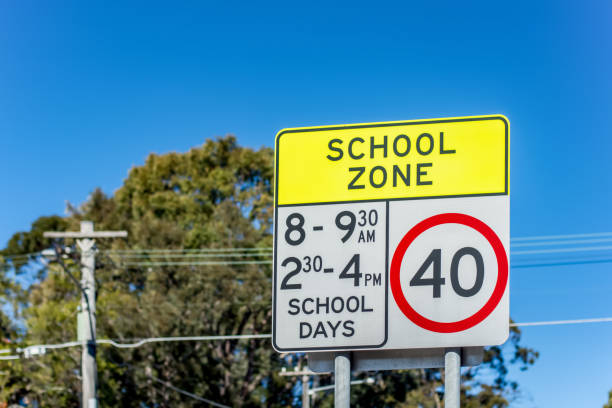Double demerits NSW are imposed for certain traffic offences during holiday periods and other times of the year. Why? During these holidays and other times of the year, there are more people travelling outside their homes including local Australians or visitors. Double demerits apply to the following offences:
- Speeding
- Illegal use of mobile phones (Texting/calling/playing while driving)
- Not wearing a seatbelt
- Riding without a helmet for motorists
These offences can lead to increased traffic, more congestion, aggressive driving behaviour, and a higher risk of accidents. Double demerit points are also applicable during some special events and festivals to help manage traffic and reduce the risk of accidents. By enforcing double demerits, authorities hope to encourage drivers to be more cautious and abide by road rules.
Drivers who accumulate too many demerit points can face fines, licence suspensions, or even disqualification from driving. Additionally, drivers receive additional penalties for certain offences committed in school zones. As a result, this can serve as a strong deterrent against reckless driving behaviour. The ultimate goal of double demerits NSW is to reduce the number of road accidents.
What Does the Law Say?
The Public Holidays Act 2010 is an Act that regulates public holidays in the state of NSW, Australia. The Act sets out the dates for public holidays in NSW and provides guidance on how we must observe and regulate public holidays. It establishes the following public holidays in NSW:
- New Year’s Day (1 January)
- Australia Day (26 January)
- Good Friday
- Easter Saturday
- Easter Sunday
- Easter Monday
- Anzac Day (25 April)
- Queen’s Birthday (second Monday in June)
- Bank Holiday (first Monday in August)
- Labour Day (first Monday in October)
- Christmas Day (25 December)
- Boxing Day (26 December)
The Act also provides guidance on the regulation of public holidays. This includes how to calculate public holiday pay, and how employers should treat employees who are required to work on a public holiday. It also sets out the rules for the operation of shops and businesses on public holidays which includes restrictions on trading hours.
The Public Holidays Act also helps to ensure that public holidays in NSW are observed in a consistent and fair manner, while also supporting the needs of businesses and workers. Double demerits NSW also apply to all of the holidays mentioned above. The demerit periods for 2023 is as follows:
| 2024 NSW Public Holiday Period | 2024 NSW Double Demerit Periods |
| Australia Day | 25 January 2024 to 28 January 2024 |
| Easter | 28 March 2024 to 1 April 2024 |
| Anzac Day | 24 April 2024 to 28 April 2024 |
| King’s Birthday | 7 June 2024 to 10 June 2024 |
| Labour Day | 4 October 2024 to 7 October 2024 |
| Christmas Day, Boxing Day, and New Year’s | 20 December 2024 to 1 January 2024 |
What About Other States?
While Queensland does not enforce double demerits over holiday periods, they are enforced all year round for people if they have a second or subsequent offence. Victoria, South Australia and Tasmania do not have double demerit periods, but warnings remain in place for drivers caught speeding.

Double Demerits NSW: Speeding Offences
Note: All demerit points in the tables below are the regular demerits. However, these demerit values are doubled during double demerit periods.
Unrestricted Class A Licence
| Offence | Demerit Points |
| 10km/h and under | 1 |
| 10km/h and under in a school zone | 2 |
| Over 10km/h | 3 |
| Over 10km/h in a school zone | 4 |
| Over 20km/h | 4 |
| Over 20km/h in a school zone | 5 |
| Over 30km/h | 5 |
| Over 30km/h in a school zone | 6 |
| Over 45km/h | 6 |
| Over 45km/h in a school zone | 7 |
Class B and Class C Vehicles
| Offence | Demerit Points |
| Over 10km/h in a school zone | 4 |
| Over 20km/h in a school zone | 5 |
| 10km/h and under in average speed detection zone | 2 |
| Over 10km/h in average speed detection zone | 4 |
| Over 20km/h in average speed detection zone | 5 |
| Over 30km/h in average speed detection zone | 6 |
| Over 45km/h in average speed detection zone | 7 |
What About Provisional Licences?
A provisional licence, also known as P-plates, is a type of driver’s licence issued to new drivers who have passed their driving test. They are also granted the right to drive unsupervised, but still have some restrictions in place. Below is a table for double demerits NSW for people with provisional licences.
| Offence | Demerit Points |
| 10km/h and under | 4 |
| 10km/h and under in a school zone | 5 |
| Over 10km/h | 4 |
| Over 10km/h in a school zone | 5 |
| Over 20km/h | 4 |
| Over 20km/h in a school zone | 5 |
| Over 30 km/h in a school zone | 5 |
| Over 45km/h | 6 |
| Over 45km/h | 6 |
| Over 45km/h in a school zone | 7 |
Provisional Licence Special Limits
| Offence | Demerit Points |
| 10km/h and under | 4 |
| 10km/h and under in a school zone | 4 |
| Over 10km/h | 5 |
| Over 10km/h in a school zone | 5 |
| Over 20km/h | 4 |
| Over 20km/h in a school zone | 5 |
| Over 30 km/h | 6 |
| Over 30 km/h in a school zone | 6 |
What happens if an unrestricted licence holder or a professional driver accumulates enough demerit points? If this is the case, they will be notified in writing that their licence will be suspended. There is no right of appeal to prevent this from happening. The driver has the option of accepting the suspension period or a “good behaviour licence” for 12 months.
Double Demerits NSW: Where To Check Demerit Points?
People can check their demerit points by accessing their driving record through the Roads and Maritime Services (RMS) website. Here are the steps to check your demerit points:
- Go to the RMS website and check demerit points
- Click on the “Check Online” button and log in to your account
- Enter your driver licence number and select the state or territory where your licence was issued.
- Enter your personal details, including your name, date of birth, and postcode.
- Follow the prompts to verify your identity.
- Once your identity has been verified, you will be able to see your driving record. This includes demerit points or double demerits NSW.
Alternatively, people can also check their demerit points by calling the RMS on 13 22 13. They can also visit a Service NSW centre in person. Any active demerits points people have accumulated will be kept on their record for 3 years and 4 months.

Importance of Seeking Legal Advice
We hope this article has helped clarify the meaning of double demerits NSW, especially for drivers particularly in NSW. Drivers may reach out to JB Solicitors if they are wrongly accused of speeding fines during double demerit periods.
Our lawyers can provide expert legal advice regarding traffic law matters and advise drivers on best options to take if legal matters arise.
Contact us today if you are facing double the demerit points in NSW.
